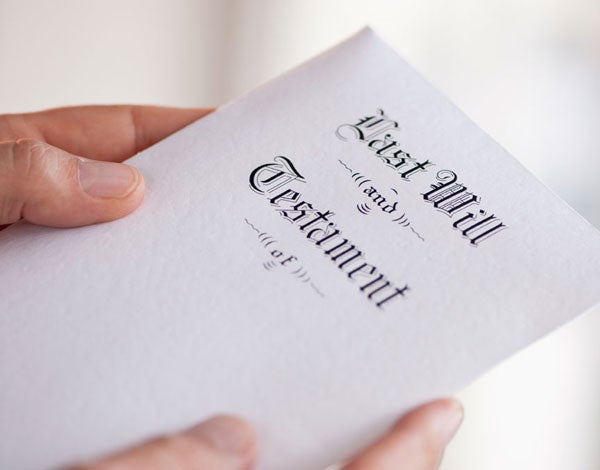
Executors exist to make sure someone’s will is fulfilled, but they can bring more trouble into a difficult situation, says Richard Manyon of Payne Hicks Beach
When a person dies, their assets will pass to their heirs as set out in their will. If there is no will, the assets will pass to certain relatives in accordance with the rules governing intestacy. There is no direct transfer from the deceased to the beneficiary, however. Instead, a personal representative is appointed to administer the deceased’s estate: if there is a will, this person will be called an executor; if not, an administrator.
The duties of the personal representative include obtaining a grant of probate, gathering in the assets of the deceased, reporting the position to HMRC, discharging any tax liabilities and distributing the assets in accordance with the will. This generally works well, and personal representatives can be either professionals or lay people.
Problems can arise, however. The personal representative may be dilatory or incompetent. They may be both an executor and a beneficiary, and unable to administer the estate in the interests of all the beneficiaries as a class.
They may, in extreme cases, be in a conflict of interest as regards the estate they are administering, perhaps because they have failed to gather in its assets or else (in the case of professionals) because they gave negligent advice to the deceased during their lifetime. In the latter instances, an independent executor would be preferred so that the affairs of the deceased, and any claims owned by the estate, can be properly investigated.
The law can provide a solution in these unfortunate circumstances: dissatisfied beneficiaries can apply to the court to remove and replace personal representatives. While this is not a rubber stamp exercise, these applications are becoming more popular and the High Court now deals with several every week.
The test in these circumstances is generally whether the continuance of the personal representative in office would prevent the estate from being properly administered. It is a general principle of probate (and broader trust) law that the personal representatives exist for the benefit of the beneficiaries. They should not have interests which diverge from the interests of the beneficiaries as a class, and if they do this may be a sign that they should be replaced.
The circumstances in which removal can be justified are myriad, but it may be that simple friction between the personal representatives and the beneficiaries will not be enough in isolation.
If, however, such friction is so extreme that it is adversely affecting the administration of the estate, or if there are other reasons why the estate is not being administered effectively and the beneficiaries have lost trust and confidence in the personal representative, the court may order their removal and/or replacement.
Beneficiaries can be rightly concerned about the costs of these types of application, which must be issued in the High Court and fully supported by evidence. These cases can take some months to reach a final hearing if contested, and the defendant personal representative will, even if removed, doubtless seek an order that their conduct was reasonable and that they should be entitled to their costs out of the estate (meaning, of course, out of the pockets of the beneficiaries).
Just this month, however, the High Court has confirmed that, if a personal representative refuses a reasonable pre-action request for their removal, they can be personally liable for all parties’ costs of any subsequent application by the beneficiaries.
Both the pre-action stage and the application need to be handled carefully, of course, but this is welcome for beneficiaries who can hope to remove errant personal representatives without jeopardising the value of the estate in the process.
Richard Manyon is an associate in the dispute resolution department at Payne Hicks Beach






